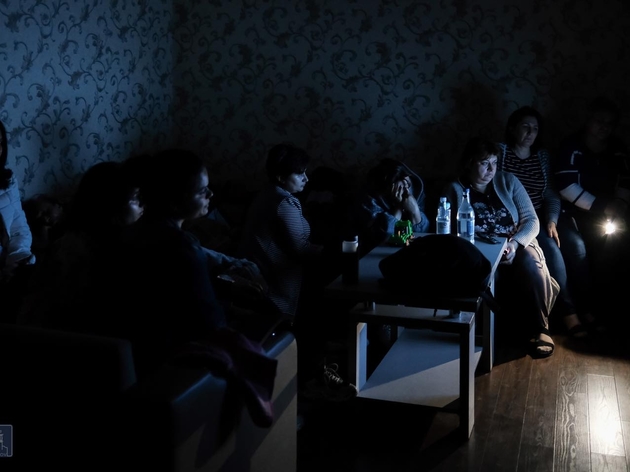A prominent journalist from Washington, an expert on Caucasus and the Middle East security Joshua Kucera reports in his article for Eurasia.net that the new Armenia-Azerbaijan fighting a long time in the making. Since July, events have appeared to be inexorably leading up to a more ambitious Azerbaijani offensive.
"For the last three months, tensions between the two sides have been rising steadily. All signs appeared to be pointing to the conclusion that Azerbaijan was preparing the ground for the most serious attempt yet to right what it sees as a deep injustice: the seizure of a large part of its territory, and the resulting displacement of more than 600,000 ethnic Azerbaijanis, by Armenian forces during a war as the Soviet Union collapsed," Kucera reports.
:In July, an as-yet-unexplained clash on the border between Armenia and Azerbaijan erupted into the conflict’s heaviest fighting in years. Both sides blamed the other for starting the fighting, and more than two months on it remains unclear what actually sparked it. The majority opinion among regional experts is that it was probably an accident that got out of hand and that neither side intended to start it," he says.
Kucera stresses Baku’s disappointed expectations of the government of Prime Minister Nikol Pashinyan. "When Pashinyan came to power in 2018, he deposed the former regime that had been vilified in Azerbaijan as the “Karabakh clan,” for the leading roles that its senior officials played in the 1990s war. Pashinyan appeared to be a fresh face who could give a new impetus to the long-stalled peace negotiations between the two sides. But as time went on, he adopted the same uncompromising positions as his predecessors and on occasion rhetorically went even further, most controversially saying at a speech in Karabakh that “Karabakh is Armenia – period.”
"The dashed expectations from Pashinyan appeared to create the sense in Baku that the peace negotiations were never going to yield any fruit, and that force would be the only means for Azerbaijan to regain its territories. Following the July fighting, the negotiations – already slowed by the global COVID-19 pandemic – effectively ceased. The Ministry of Foreign Affairs issued a long list of “provocations” that the Armenian side had committed since Pashinyan came to power, a document that appeared aimed at an international diplomatic audience. Aliyev demanded a specific timetable for Armenian withdrawal from the Azerbaijani territories it controls, an unprecedented condition that he knew the Armenians would never fulfill," Kucera states.
"The situation was dire enough that the U.S. embassies in Baku and Yerevan both issued statements on September 25 warning Americans to steer clear of border areas. When fighting broke out early in the morning of September 27, Aliyev said in an address to the nation that it was a “counter-offensive” undertaken “in response to military provocation” by Armenia. But it was a thin pretext that he didn’t bother to explain further. “I am confident that our successful counter-offensive will end the occupation! It will end injustice! It will end the occupation that has lasted for nearly 30 years!” he said," Kucera concluded.






